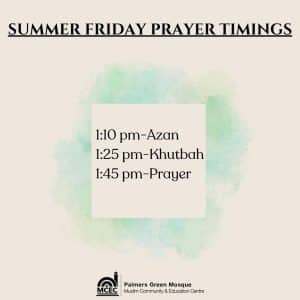
Islam points out through many unequivocal statements to the importance of “Amana” (honesty or trust). The reference to this principle appears as a regular theme in the Qur’an and the Sunna. From the Qur’an, the main verse is
“Allah doth command that you to render back trusts to those to whom they are due …” 1Qur’an, 3.v 58.
There are many interpretations placed on this verse by the highly acknowledged Qur’anic commentators. Al-Tabari (d.310AH/922) stated that the verse was revealed, when the Prophet took the keys of the “Ka‘ba” from its custodian ‘Uthman Ibn Talha, so the verse commanded him to return the keys. Therefore, the Prophet did. 2Al-Tabari, Tafsir al-Tabari, Beirut, Dar al-Kutub al-‘Ilmiyya, (1999) (Third Edition), vol.4, p148. Tafsir Ibn Kathir (Abridged), Riyadh, Darussalam, vol.2p., 493,494. Although the verse came in response to the issue of keys of the Ka’ba, the actual wording is (general). Al-Razi confirms that this verse should not be restricted in its applications, Allah instructs believers to honour all their responsibilities, whatever they would be, religious or worldly
This generalisation is supported by the “ijma‘” (consensus) that, the command is to return the trusts to their owners whether they are righteous or sinful.3Al-Zamakhshari, al-Kashshif, Bierut, Dar al-Kutub al-‘Ilmiyya, vol.1, p.512. This ijma‘ removes any doubt about the broad interpretation of the verse or its continuous applicability.
The word “Amana”, mentioned in the Qur’an, means trust, honesty, responsibility and integrity in all the duties which Allah has placed upon humans. This is regardless of whether the duties are commands, prohibitions, their trusts or their covenants/promises. This Amana is a general obligation binding a person to justly and in good faith, deal with every right, property or duty they are connected to.
According to many Qur’anic commentaries, honesty is an obligation upon every person in all the circumstances. Everyone is required to act honestly in any matter in which they are involved. This includes rulers, judges, scholars and every person who is in the position of trust to carry out their duty, whether the trust is connected to world affairs or the hereafter. 4Al-Tabari, vol.4, p149.
The command of trust is worded in such a way that trust is identified as the critical essence of every matter, and individuals are obliged and expected to act honestly in their life. This deep-seated principle of honesty means no activity or aspect of life can escape its reach.
This verse is the most comprehensive statement that imposes the obligation to deal honestly and justly with everyone on everything. 5Al-Qurtubi, al-Jami‘,vol.5,p.165 and post. There is nothing in the words used in the Quran, which restricts its application. There is no express provision in Qur’an or Sunna which restricts honesty to tangible objects only.
The principle of Amana or honesty occupies a significant position in Islam, and it is reflected in many verses of the Qur’an and numerous ahadith. For example, one verse praises the Prophet Moses by saying
“truly, the best of men for thee to employ is the man who is strong, the trustworthy.”
Qur’an, 28.v.26
in another verse Allah praises the Angel of Revelation by saying
“With authority there, and faithful to his trust”
Qur’an,81.v. 21.
and a third verse praises believers who are
“Those who faithfully observe their trusts and their covenants”
Qur’an,23.v. 8.
More traces of the principle of trust are to be found in the Sunna. For example, it is reported that the Prophet said:
“Return the trust to those who entrusted you and do not betray those who betrayed you”
Muslim b. al-Hajjaj, Sahih Muslim, translated by Saddiqi, Abdul Hamid, Lahore, Sh. Muhammad Ashraf, vol.I.A,p.48.
This evidence supports the meaning that honesty is compulsory, and it has a significant reach over everything. 6Al-Qurtubi, al-Jami‘, vol.5, p.165. These texts are not abrogated or unequivocal. Therefore, the list of trusts can always be open and updated, and every individual is within the terms of each trust in which he is involved. Today’s fuqaha’ (Scholars of Jurisprudence) have, so far as possible, applied these verses to new norms and needs with similar effects. The principle of honesty constitutes an integral part of Islamic life. The Prophet often used to say in his sermons:
“There is no faith for one who cannot be trusted. There is no religion for one who cannot keep their promise.”
Musnad Aḥmad 11975
There are many further matters to debate in this regard but there is no doubt that Amana must be an essential part of every Muslim character. Perhaps the most important social aspect of honesty is to be faithful to all of our contracts, promises, covenants, and trusts. Allah is clear in this with regards to himself in that he will fulfil hi obligations to people and so people should do the same between themselves.
“You who believe, fulfil your obligations…”
Qur’an,5.v. 1.

About the Author
Dr. Mohamed Ali Ahdash is MCEC Palmers Green Mosque’s Senior Imam. He is available from Fridays to Sundays from Asr onwards. Dr. Ahdash is a lawyer and an expert in Islamic studies. He is the author of Copyright in Islamic Law. He studied Law at the University of Benghazi, Libya for his first degree coupled with a traditional education (IJAZA) in Islamic studies and Arabic. He then studied for a diploma’s degree in Islamic and Arabic Studies at the University of Tripoli, Libya. He worked as a lawyer,a researcher and a lecturer. He obtained a Master of Law from SOAS, University of London and PhD in Islamic Law, from the University of Wales, Lampeter. His research interests include Law, Islamic studies and Culture, history, political issues of MENA.



